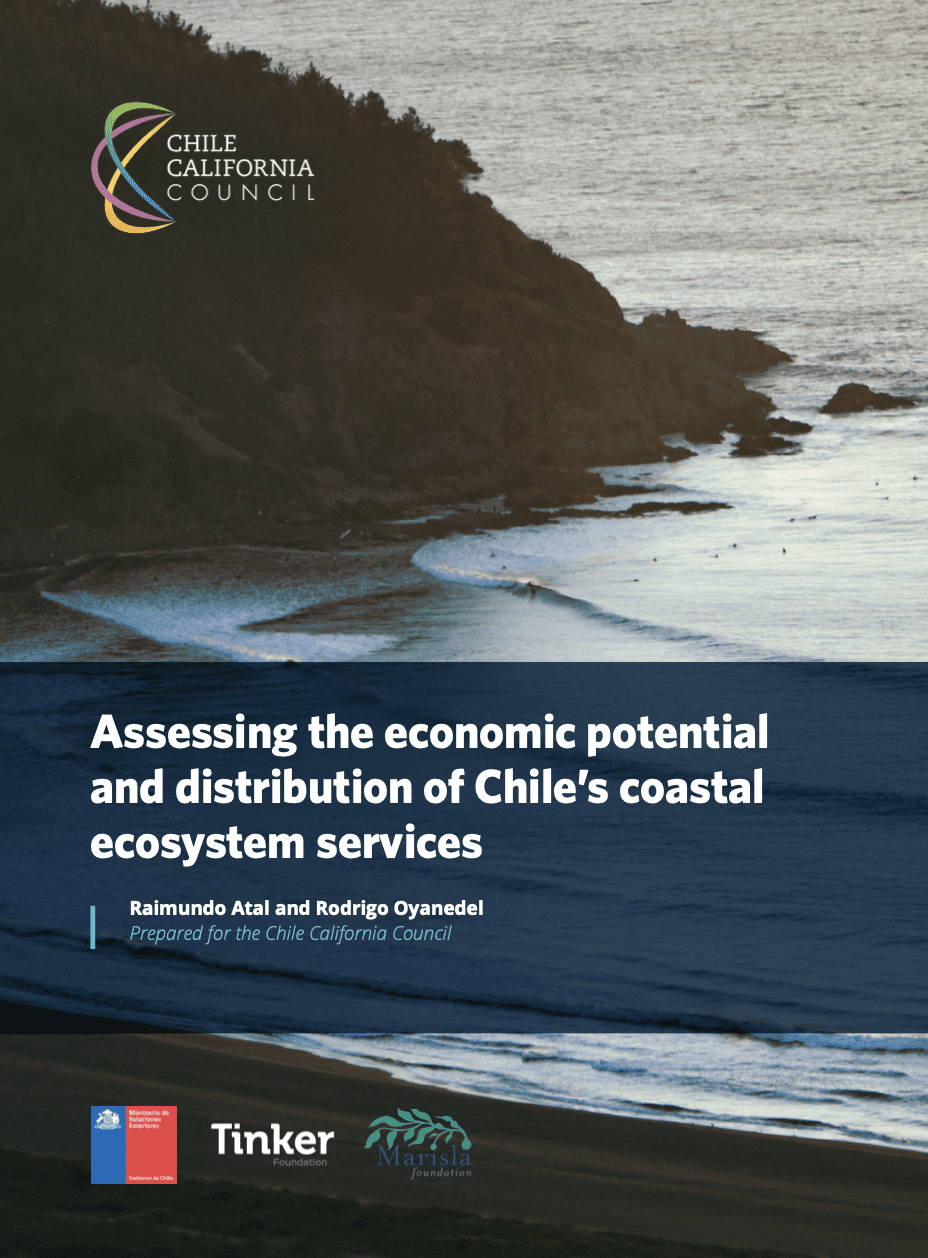Assessing the economic potential and distribution of Chile’s coastal ecosystem services
The Chile California Council has developed through its Coastal Marine Program, a multidisciplinary scientific assessment to determine the economic value of protecting Chile’s Coastal Zone, estimating the potential gap between current and future well-managed scenarios. For this, a new methodology was implemented to estimate the value of various coastal ecosystem services for coastal municipalities in Chile, from Arica to Puerto Montt. Besides the aggregated economic impact, the study shows the great diversity between municipalities along Chile’s coastal zone, providing valuable tools to design and prioritize conservation policies.
The team effectively designed an innovative methodology to value the three coastal ecosystem services studied (fisheries, tourism, and wetlands), using publicly available information, plus available data collected in previous studies. This enabled a collaborative process among the team and other scientists involved in the field, with the vision of integrating and building with what has been done before.
The methodology involved (1) defining the relevant coastal ecosystems and their services, (2) evaluating and quantifying the provision of those services today, (3) constructing plausible scenarios of better-managed trajectories of development for these services, (4) calculating the net present value in each of these scenarios, and finally (5) defining the potential benefit as the difference between the net present value under the “optimistic” and “business as usual” scenarios. This was implemented at a national and local level at coastal municipalities, following two stages: first, through a pilot project in the coastal municipality of the VI Region of Chile (Región del Libertador Bernardo O’Higgins), and then scaling the methodology to all coastal municipalities north of Puerto Montt.
This work is part of a long-term roadmap to implement a Coastal Marine Strategy in Chile, using California’s learning curves. This study is a starting point for this, meant to enable an informed public debate towards the economic potential of coastal conservation policies, providing innovative tools to design, evaluate and prioritize these efforts. This initiative can serve as an initial milestone to keep building over, as there’s still plenty of granular information to be obtained and analyzed.
